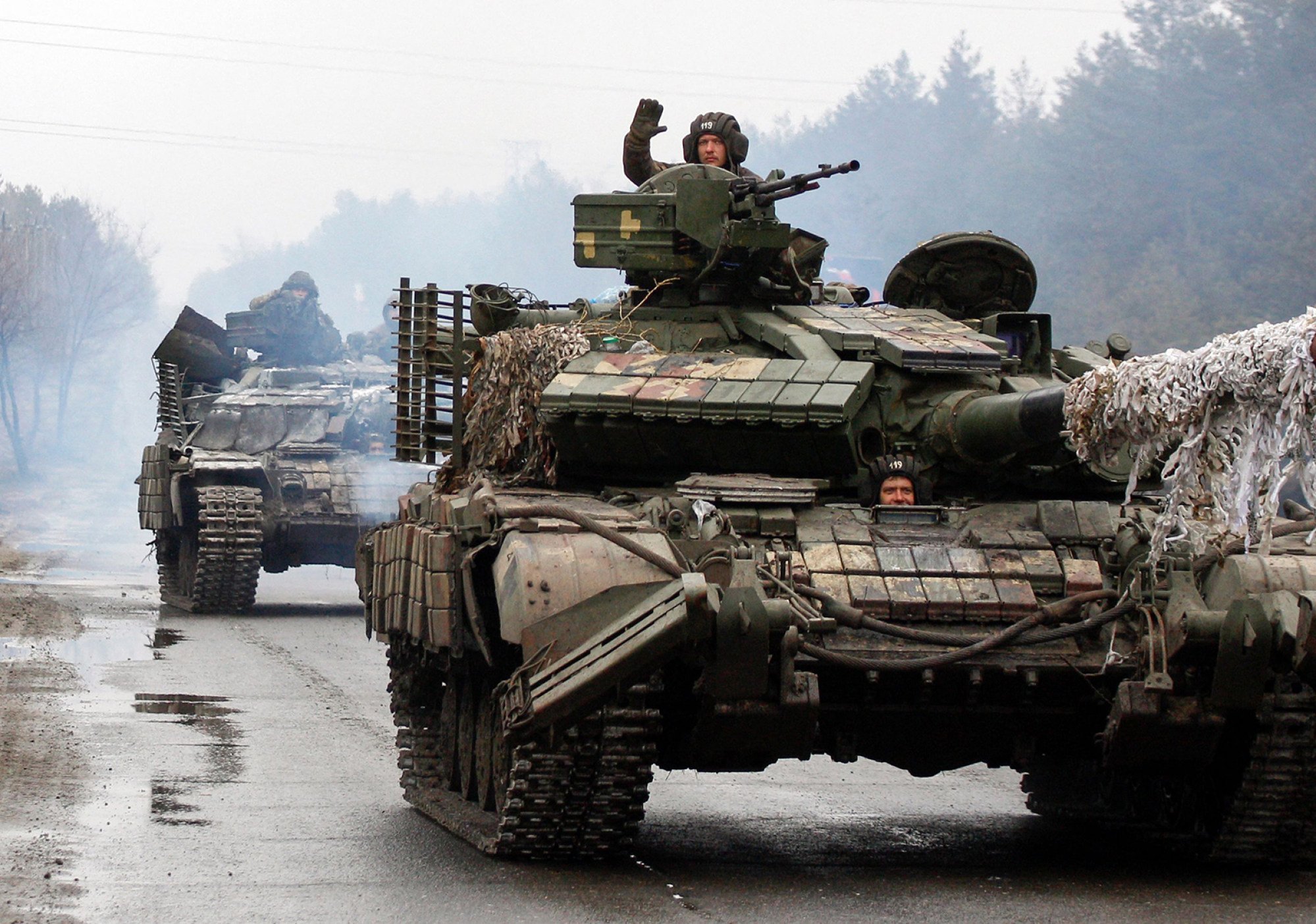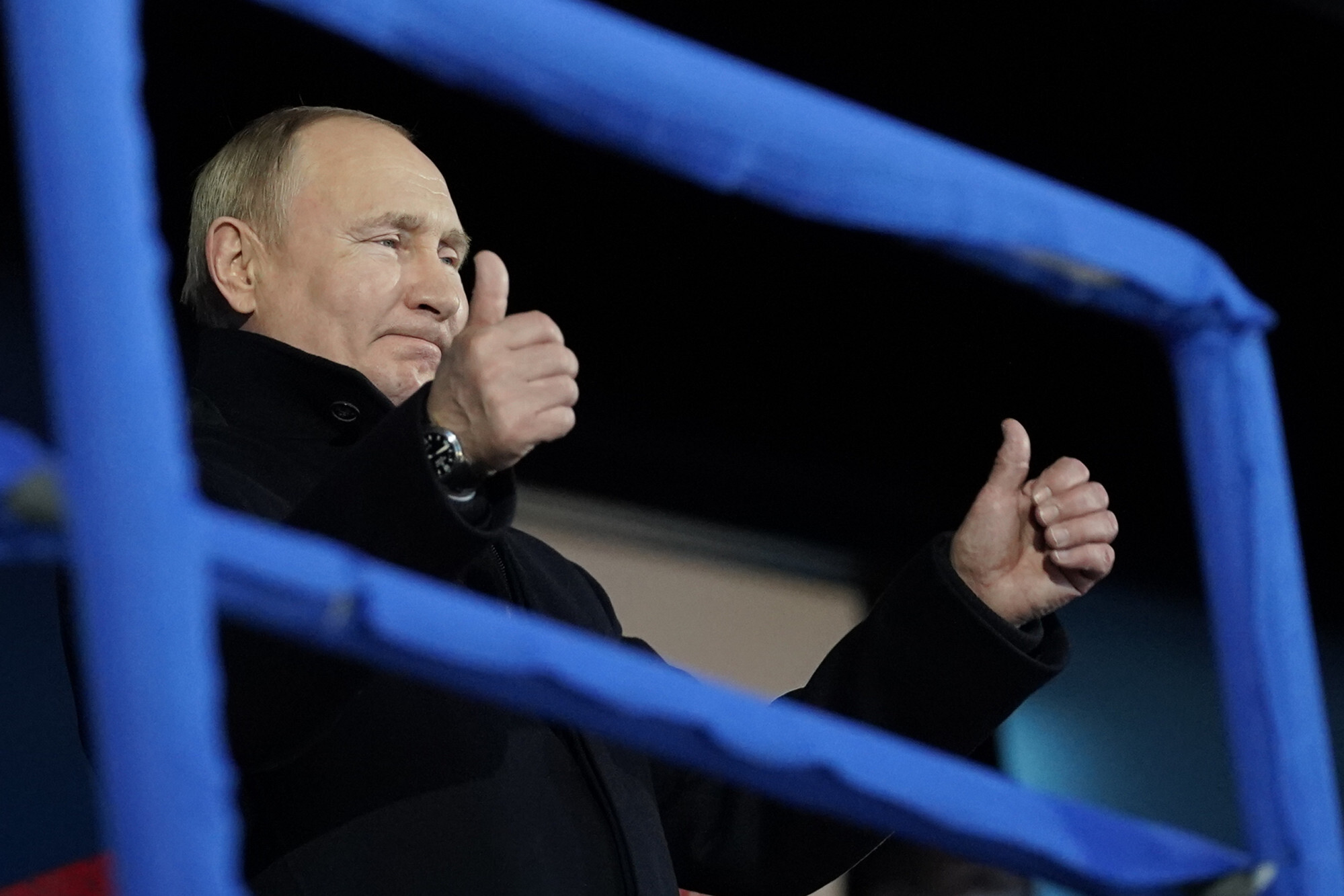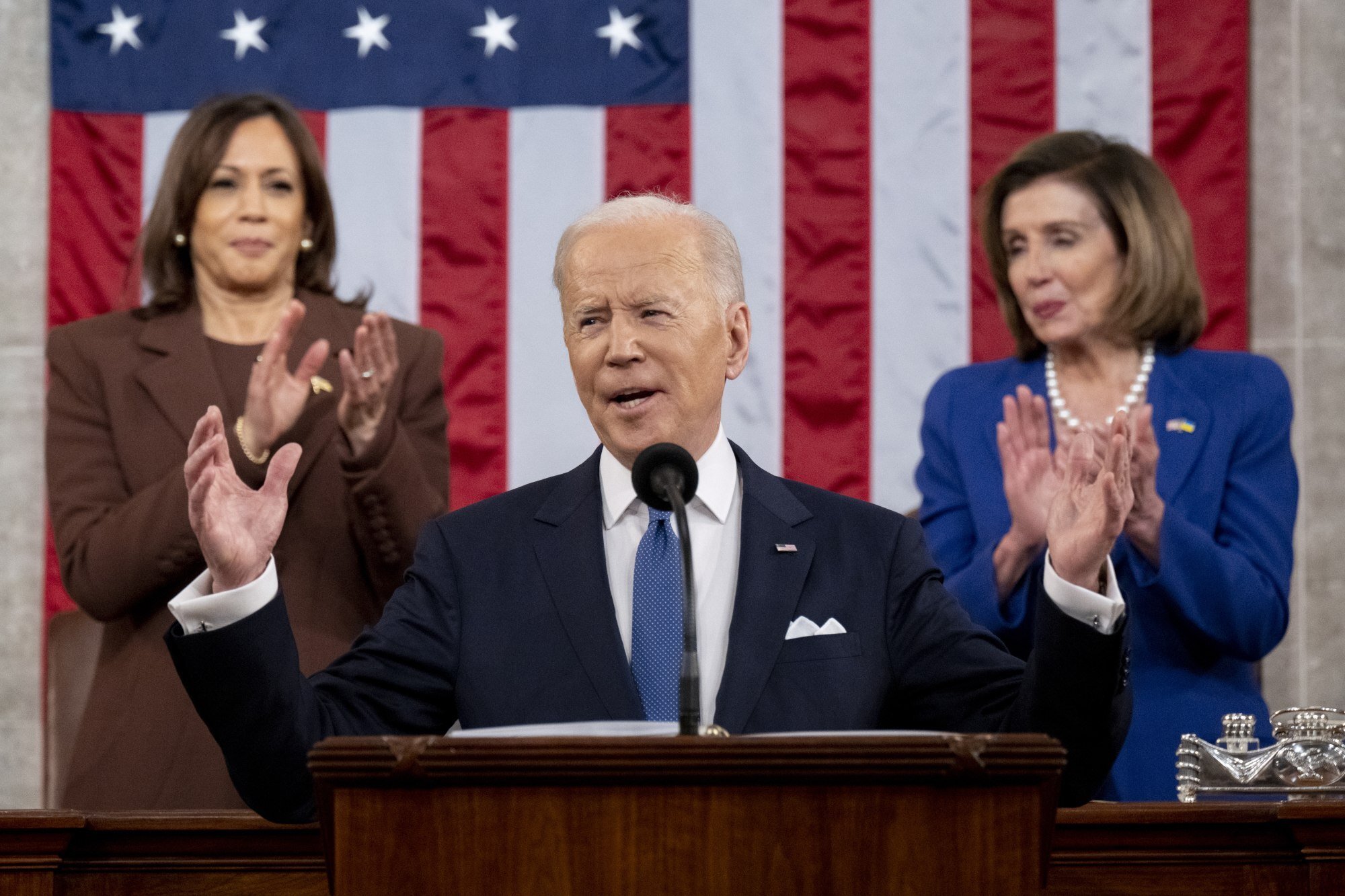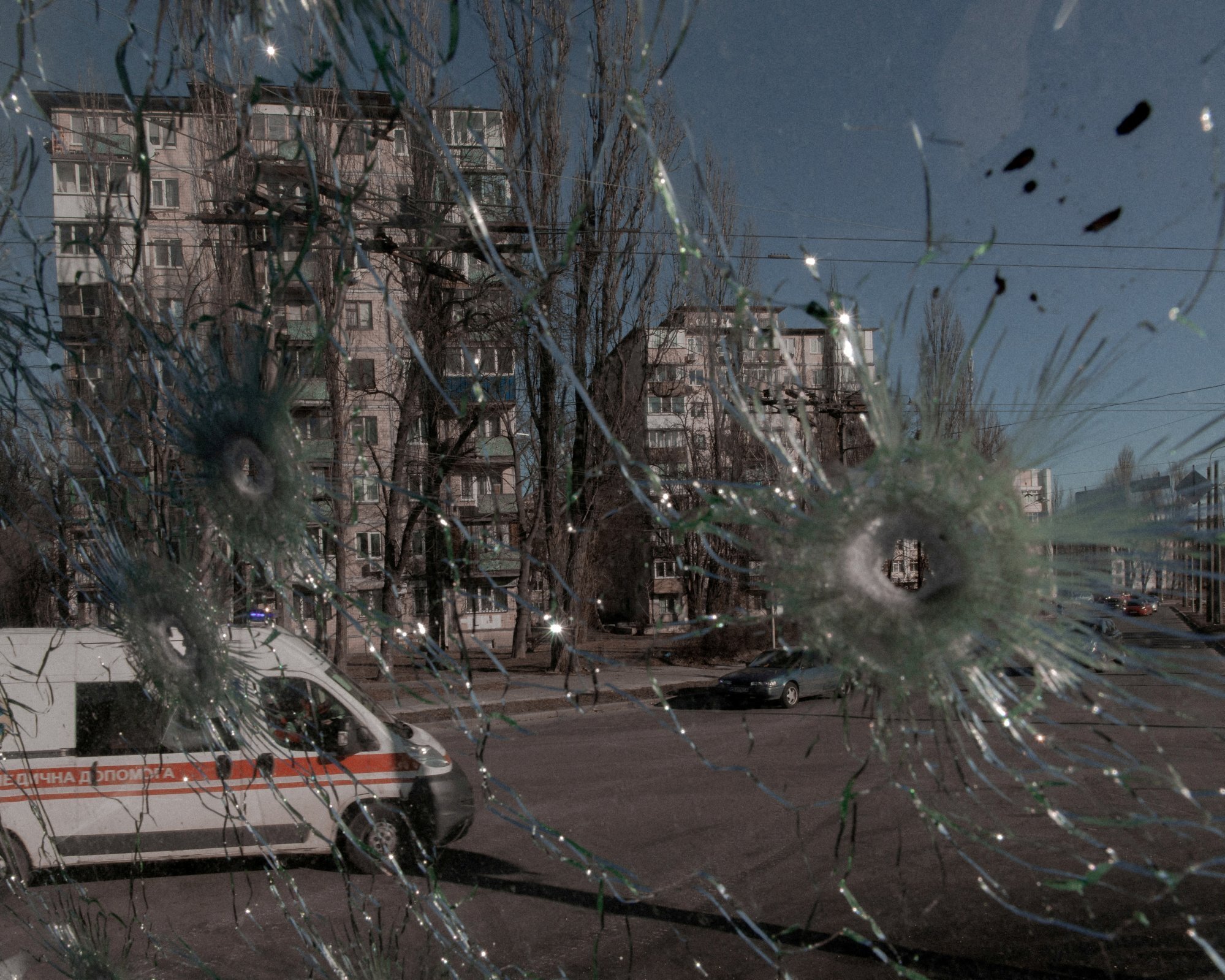
Why China should step forward and become a proactive peacemaker in Ukraine
- With civilian casualties increasing and the international community rallying behind Ukraine, Beijing’s verbal acrobatics can’t be sustained. It needs a new playbook
- China should phone Russia, the US, Ukraine, and the EU to defuse the crisis. Xi should reach out to Biden to show how two world powers can both compete and cooperate
On the other hand, Beijing has also called for “respecting and safeguarding the sovereignty and territorial integrity of all countries” and argued that “a country’s security cannot come at the expense of harming others’ security”. It has called for more diplomacy and negotiations to reduce the conflict.
But with the Russian troops meeting stiffer-than-expected resistance, civilian casualties increasing sharply, and the international community largely rallying behind Ukraine to isolate Russia, Beijing’s verbal acrobatics can no longer be sustained. It needs a new playbook.
The time has come for China to step forward and leverage its economic and political power to play a proactive role in mediating a ceasefire.
No matter how one looks at this, Beijing is well-positioned as a peacemaker as it can leverage its warm ties with Moscow.

On Tuesday, Beijing appeared to have signalled a subtle shift towards this position when Foreign Minister Wang Yi had a phone call with his Ukrainian counterpart Dmytro Kuleba.
Wang said the situation in Ukraine had changed rapidly and that China lamented the outbreak of conflict and was extremely concerned with the suffering of civilians, Xinhua reported.
The report quoted Kuleba as saying that China played a constructive role in the Ukrainian issue, adding that “Ukraine stands ready to strengthen communication with the Chinese side and looks forward to China’s mediation in achieving a ceasefire”.
But the Xinhua report did not say if Wang was open to the role of mediator. It quoted Wang as repeating the official line that China called on Ukraine and Russia to find a solution through negotiations, and supported all constructive international efforts conducive to a political settlement.
Maybe Wang needs to bring the matter to China’s top leadership to discuss or Beijing needs to take a temperature check with Moscow first before agreeing to such a role.
But Beijing should not allow this opportunity to slip away as stepping up as mediator would greatly improve its international image as a responsible world leader and earn goodwill around the world, among other benefits.

China finds it difficult to publicly reconcile the two opposing elements, hence its rhetorical contortionist and its abstentions from the United Nations Security Council’s resolution condemning Russia’s invasion of Ukraine on February 25 and a similar vote at the UN General Assembly on March 2.
At home, Chinese officials and state media have aggressively pushed for a pro-Russia stance and blast Washington as the culprit.
Articles widely circulated on social media cite the warnings by Henry Kissinger, the US former secretary of state, and George Kennan, the architect of America’s containment of the Soviet Union, that Nato’s eastward expansion and failure to address Russia’s security concerns would lead to a crisis over Ukraine.
From the onset of the conflict, some Chinese officials and analysts might have misjudged Putin’s intention as they had anticipated that Russia’s invasion was a bluff or a limited military operation rather than a full-scale invasion.
China benefits if the US pivots to Ukraine, but don’t mention Taiwan
One piece of anecdotal evidence came on February 24 when Russia started to attack Ukraine. The Chinese embassy in Kyiv told its citizens in the country to take precautions and display a Chinese national flag prominently on their vehicles if they needed to drive anywhere. That triggered a huge nationalistic outpouring on social media about China’s strength but just two days later, the embassy issued another statement urging Chinese nationals not to display any sign as the scale of the Russian invasion became clearer.

On China, Biden said the US and China were engaged in a race to “win the economic competition of the 21st century”.
“I’ve told Xi Jinping it’s never been a good bet to bet against the American people,” he said.
China may be competing with the US and its Western allies but that does not mean they cannot work together to defuse the Ukraine conflict as doing so is in everyone’s interest.
As the partnership between Russia and China signals an intention to forge a new world order to challenge the old one led by the US, Beijing’s lack of action will not go down well in many parts of the world that see the new leaders trying to solve disputes with force, no matter how legitimate Russia’s security concerns are.

But China’s rhetorical contortions over Ukraine risk damaging its relationship with some of those countries.
It is against this background that Beijing must play a more active and constructive role in defusing the Ukraine crisis.
On February 25, Xi called Putin to discuss the Ukraine situation and during their talks Putin expressed willingness to hold high-level negotiations with Ukraine.
On the same day, Wang also held phone calls to discuss the Ukraine situation with British Foreign Secretary Liz Truss, the European Union’s chief diplomat Josep Borrell, and the French president’s foreign policy adviser Emmanuel Bonne.
But China’s passive stance was apparent in its official statements which said that Wang had held those calls at the request of those officials. A separate Xinhua statement said that Wang had held the phone call with his Ukrainian counterpart at the latter’s request – six days after Russia’s invasion began. Before the crisis, China was Ukraine’s largest trading partner and Kyiv was a key European partner in the Belt and Road Initiative.
From 5G to infrastructure, healthy US-China competition will benefit the world
It is still not too late for Chinese leaders to conduct more proactive telephone diplomacy with Russia, the US, Ukraine, and the EU to defuse the crisis. For instance, Xi should reach out to Biden to discuss the Ukraine situation, an apt example of how the two world powers can compete and cooperate at the same time. As Putin has to end the war one way or another, China’s mediation could potentially give him an off-ramp.
Perhaps as a sign of China’s involvement, Beijing could even host the ceasefire talks between Russia and Ukraine by offering a more secure and conducive environment, as Russia and the EU have issued tit-for-tat airspace bans and Ukrainians have expressed reservations about the location of talks on the border with Belarus.
Last but not least, if the war drags on and the humanitarian crisis deepens, China should also be ready to offer assistance to the people in Ukraine – something a responsible world power should do without any hesitation.
Wang Xiangwei is a former editor-in-chief of the South China Morning Post. He is now based in Beijing as editorial adviser to the paper

